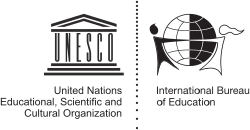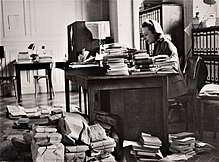The following outline is provided as an overview of and topical guide to education:
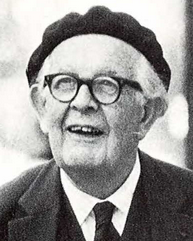
Jean William Fritz Piaget was a Swiss psychologist known for his work on child development. Piaget's theory of cognitive development and epistemological view are together called genetic epistemology.
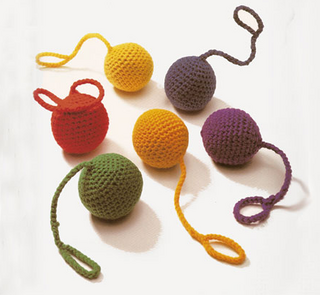
Early childhood education (ECE), also known as nursery education, is a branch of education theory that relates to the teaching of children from birth up to the age of eight. Traditionally, this is up to the equivalent of third grade. ECE is described as an important period in child development.
Benjamin Samuel Bloom was an American educational psychologist who made contributions to the classification of educational objectives and to the theory of mastery learning. He is particularly noted for leading educational psychologists to develop the comprehensive system of describing and assessing educational outcomes in the mid-1950s. He has influenced the practices and philosophies of educators around the world from the latter part of the twentieth century.

Open educational resources (OER) are teaching, learning, and research materials intentionally created and licensed to be free for the end user to own, share, and in most cases, modify. The term "OER" describes publicly accessible materials and resources for any user to use, re-mix, improve, and redistribute under some licenses. These are designed to reduce accessibility barriers by implementing best practices in teaching and to be adapted for local unique contexts.

Rousseau Institute is a private school in Geneva, Switzerland. It is considered the first institute of educational sciences founded in Europe when it opened and gained international influence as the originator of the scientific approach to education phenomena. It became part of the University of Geneva.

Environmental education (EE) refers to organized efforts to teach how natural environments function, and particularly, how human beings can manage behavior and ecosystems to live sustainably. It is a multi-disciplinary field integrating disciplines such as biology, chemistry, physics, ecology, earth science, atmospheric science, mathematics, and geography.
UNESCO-CEPES was established in 1972 at Bucharest, Romania, as a de-centralized office for the European Centre for Higher Education. The centre was closed in 2011 due to lack of funding. The centre promoted international cooperation in the sphere of higher education among UNESCO's Member States in Central, Eastern and South-East Europe and also served Canada, the United States and Israel. Higher Education in Europe, a scholarly publication focusing on major problems and trends in higher education, was the official journal of UNESCO-CEPES. The CEPES headquarters was in the Kretzulescu Palace in Bucharest.

Édouard Claparède was a Swiss neurologist, child psychologist, and educator.
Education in Lebanon is regulated by the Ministry of Education and Higher Education (MEHE). In Lebanon, the main three languages, English and/or French with Arabic are taught from early years in schools. English or French are the mandatory media of instruction for mathematics and sciences for all schools. Education is compulsory from age 3 to 14.

Beatrice Ensor was an English theosophical educationist, pedagogue, co-founder of the New Education Fellowship and editor of the journal Education for the New Era.

Elisabeth Friederike Rotten was a Quaker peace activist and educational progressive.
Attash Durrani was a Pakistani linguist, researcher, critic, author, educationist, and gemologist. He wrote more than 275 books and approximately 500 papers in Urdu and English. His main disciplines of study were language, education, computer science, and information technology. He was the recipient of the Tamgha-i-Imtiaz and Sitara-e-Imtiaz for his work of Urdu language and literature.
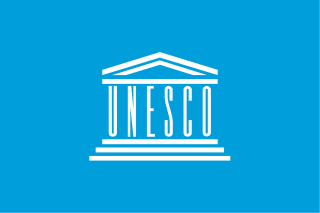
The United Nations Educational, Scientific and Cultural Organization (UNESCO) is a specialized agency of the United Nations (UN) with the aim of promoting world peace and security through international cooperation in education, arts, sciences and culture. It has 194 member states and 12 associate members, as well as partners in the non-governmental, intergovernmental and private sector. Headquartered in Paris, France, UNESCO has 53 regional field offices and 199 national commissions.
Eleanor Ruth Duckworth is a teacher, teacher educator, and psychologist.

Roger Cousinet was a French teacher and a pioneer of the progressive education system in France. He obtained his Bachelor of Arts in 1903 at École Normale Supérieure. He went on to become a teacher, before being mobilized into World War 1. Soon after the war, he continued his teaching, focusing on the method of active learning, which was initially frowned upon by his superiors at the time.
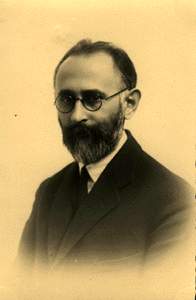
Adolphe Ferrière was one of the founders of the progressive education movement.

Holocaust education is efforts, in either formal or informal settings, to teach about the Holocaust. Teaching and Learning about the Holocaust addresses didactics and learning, under the larger umbrella of education about the Holocaust, which also comprises curricula and textbooks studies. The expression "Teaching and Learning about the Holocaust" is used by the International Holocaust Remembrance Alliance.
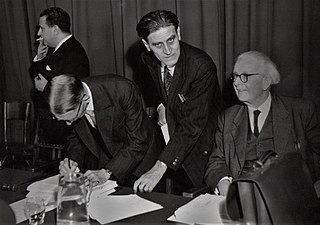
Pedro (Pere) Rosselló i Blanch, was a Catalan lecturer and educator. He served as the deputy director of the International Bureau of Education (IBE) from 1928-1969, a position which he took over from Elisabeth Rotten. Working alongside director Jean Piaget, he played an integral role in shaping the IBE during its inception as an international organization until its merger with UNESCO in 1969.

Marie Charlotte Elisabeth Butts was a French educator, translator, and children’s book author. She served as the first General Secretary of the International Bureau of Education (IBE) from 1926-1953, alongside directors Pierre Bovet and Jean Piaget, respectively.

